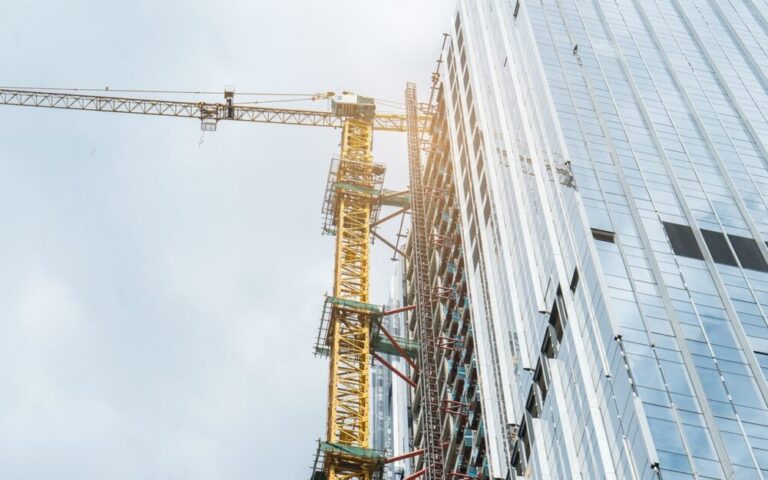Budget, Policy & Stimulus News
New PPP Rules Could Change Forgiveness Calculations
New rules issued by the Small Business Administration could make some Paycheck Protection Program borrowers’ rent or mortgage interest payments ineligible for forgiveness. Generally, the rules of the COVID-19 stimulus program deem rent and mortgage interest as expenses that count toward loan forgiveness, so long as 60 percent of the proceeds are spent on payroll. But the federal agency overseeing the program announced a new position on those outlays for businesses that have a landlord-tenant agreement between related parties. (Source: Phoenix Business Journal)
Fed Rate Policy Shift Allows Inflation to Rise
The Federal Reserve on Thursday adopted a historic shift in its approach to interest-rate policy that places more emphasis on boosting employment and allows inflation to rise above the Fed’s two percent target during economic expansions, keeping rates lower for longer. In the current COVID-19-induced economic downturn, the new, long-awaited policy likely would keep rates near zero for several more years, economists have said. (Source: AZCentral)
Charter Schools Can Keep PPP Money without Cuts
Arizona charter schools that received up to $100M in federal Paycheck Protection Program forgivable loans can keep the money and not have any of their state funding cut, the Arizona Auditor General’s Office has determined. At issue is a rarely enforced state charter school law that prohibits taxpayers from paying “twice to educate the same pupils.” (Source: AZCentral)
Economic News
Administration Touts Opportunity Zone Benefits
According to a progress report from the White House Council of Economic Advisers, the federal Opportunity Zones initiative, which was enacted as part of the Tax Cuts and Jobs Act of 2017, has created approximately a half a million jobs and attracted billions in capital investments. (Source: Affordable Housing Finance)
Landlords, Tenants Need More Help
Arizona REALTORS is questioning why the available financial pandemic assistance to both those living in rental homes and the owners obligated to make mortgage payments and pay taxes, insurance and maintenance fees on those homes have not been widely distributed. The Arizona Department of Housing’s rental assistance program has only $5M in available funding. These funds are not legislative or federal COVID-19 relief funds. More than $12M in rental assistance applications have been submitted, and only seven percent of those applications have been processed. To make matters worse, only about $2.1M of the allocated $10M has been provided to those in need. (Source: Inside Tucson Business)
Freddie, Fannie Keep Multifamily Capital Flowing
Freddie Mac and Fannie Mae are on track to lend nearly as many dollars to apartment properties in 2020 as they did in 2019. They have even loosened rules created in the early months of the crisis that required new multifamily borrowers keep enough reserves on hand to ensure they could make loan payments for as long as 18 months. (Source: National Real Estate Investor)
CMBS Market Will Continue to Deteriorate
The CMBS market will likely continue to deteriorate through the end of the year as the pandemic wears on. This year, the CMBS market was hit immediately by the pandemic, and while the market has rebounded, certain loan classes will continue to deteriorate. Next year will offer better insight into the lending platform. Early in the pandemic, the CMBS market was perhaps the most impacted lending platform. However, that changed quickly and the market rebounded with competitive terms. (Source: GlobeSt.com)
Resources
Ariz. Manufacturers Eligible for Pandemic Relief
Arizona manufacturers in need of assistance as a result of the pandemic can apply for support from the Arizona Commerce Authority’s Arizona Manufacturing Extension Partnership, or AZ MEP. A one-time allocation of $730K from the CARES Act will be used to subsidize services to help manufacturers overcome some of the impact from the effects of the pandemic. (Source: Phoenix Business Journal)
Other
Closed Buildings Could Worsen Water Quality
While bars, gyms, dine-in restaurants and other buildings have been closed to help prevent the spread of COVID-19, water left sitting in pipes could change in quality. It’s possible that water left sitting for long periods of time could contain excessive amounts of heavy metals and pathogens concentrated in pipes nationwide, say researchers who have begun a field study on the impact of a pandemic shutdown on buildings. (Source: Rose Law Group Reporter)
NEWS TICKER
- [September 5, 2025] - Major General Plan Amendments Requested for 1,800-acre Florence Area
- [September 5, 2025] - Mesa Approves 29-Unit Townhome Plan
- [September 5, 2025] - VanTrust Announces 1.1MSF Industrial Plan in Glendale
- [September 5, 2025] - Construction Job Openings Up 77,000 YoY
- [September 5, 2025] - Arizona Projects 09-05-25
- [September 3, 2025] - TSMC Building Water Reclamation Plant
- [September 3, 2025] - Pinal Airpark Gets OK, Funding for Air Traffic Tower
- [September 2, 2025] - 336 Apartments Coming to Casa Grande Commons

